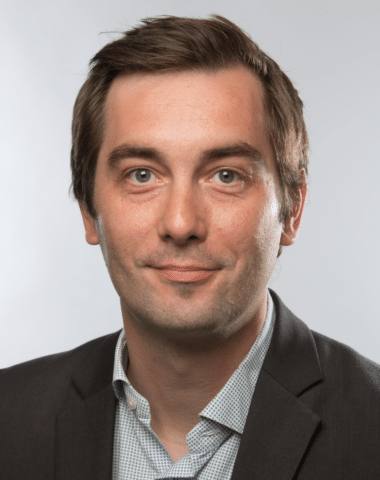“There is no one right way to manage innovation, it’s about organising the menagerie!”
Your book “The Innovation Jungle” (La Jungle d’Innovation) talks about a ‘menagerie’ of different types of innovation in companies. Can you explain this metaphor?
Rémi Maniak. What we point out in the book, and in light of the hundreds of company cases and projects we have supported over the last 20 years, is that the way innovation in business is more exciting than a simple dog-eat-dog mentality. In reality, there is room for a sort of biodiversity, with companies managing their innovation according to different performance logics. The metaphor we use in the book is indeed that of the jungle, which contains different species, each with its own way of behaving. For example, in the innovation jungle, there are gazelles whose ultimate goal is to come up with cutting-edge offers with a rapid frequency of renewal. There are also lions that are static and sure of their strength, butterflies that constantly mutate or pivot around their assets, boa constrictors that lock customers into offers and so on. These are different strategies, with different ways of steering innovation strategies.
In the innovation jungle, there are gazelles, rapidly changing their cutting-edge offers; lions that are static and sure of their strength; or butterflies that constantly mutate or pivot around their assets.
Nicolas Mottis. At the company level, as we point out in our book, research has shown that there is no correlation between R&D expenditure and the company’s performance in terms of innovation. As such, we know that innovation performance is due to more than the budget. Even if R&D spending is still significantly lower in France than in Germany, for example (2% vs. 3% of GDP) and the gap should clearly be reduced, our point of view is that to successfully innovation, we must focus on the articulation between strategic choices, organisational factors and operational steering tools that could be managed differently.
There have been many reports on the subject in the past, which show that there is a problem of transferring innovations to larger markets in France. We can talk about ecosystems here, because a lot of innovation is systemic (5G, smart cities, energy transition, etc.) and therefore requires alignment between local authorities, large companies, and research institutes.
The German culture of cooperation between the various players in the same sector or territory is particularly beneficial in this respect. On the other hand, a structural weakness in some European countries is still the lack of investors capable of injecting the 100 million euros or so needed to scale up projects at an early stage. The start-up segment is booming, and the number of unicorns is increasing rapidly, but there is still a long way to go to create the global technology leaders our economy needs.
What can therefore be done to improve the chances of a successful scale-up?
NM. It’s a question of alignment between strategy, organisational choices, and resource management. In the Silicon Valley, there is a huge local ecosystem, with players interacting amongst themselves, whilst knowing each other well. In Europe, much of the demand is fragmented, which makes life very difficult for innovators. There is also a generational gap, although that is closing. The United States has benefited greatly from two or three generations of entrepreneurs with experience in start-ups, which is something we lack in Europe. This gap is now being closed with renowned entrepreneurs such as Xavier Niel, founder of Free or Jean-Baptiste Rudelle, founder of Criteo (advertising technology), who are now supporting new generations of entrepreneurs, effective start-up incubators in research institutions and increasing support from venture capital funds.
RM. In addition to the factors mentioned by Nicolas, I would add that governments can be very good catalysts for companies to reach this critical mass. In China, Huawei was able to benefit from large state orders in the early days to deploy telecommunication networks over a large part of China, which gave them a considerable lead, particularly in terms of technology. The United States is also playing this game, with government agencies (NASA, CIA, NSA, DARPA, etc.) having played a fundamental role in the scale-up of companies such as SpaceX (space launchers) or Palantir (data analysis).
This is all the more necessary as most of the challenges that companies face today are partly public challenges. For example, the driverless vehicle must help reduce road deaths, and investments in eco-design, recycling, renewable energy should help preserve the planet. It would be absurd to place the burden of innovation solely on private companies, or solely on the public authorities. There is a real need for public-private co-investment to bring out national and even European champions.
Without appropriate measures, how can we measure the failure of an innovation project?
RM. I think we need to shift our focus from the P&L [operating account] of a company to the maintenance or creation of assets in the economic and social ecosystem. A project can be a commercial success but neglect the reconstitution of the company’s strategic assets and, at the level of the ecosystem, destroy the jungle and its balance. Of course, this requires shaking up the calculation conventions of corporate and market finance, but on this point it seems that the machine is finally in motion.
NM. Indeed, today almost all investors are interested in ESG (environmental, social and governance) performance factors. The impact on the planet is becoming a real concern for many financial players. And that is not all. As we show, there is no one right way to manage innovation, it’s more about preserving a variety of species and organising the menagerie!
















